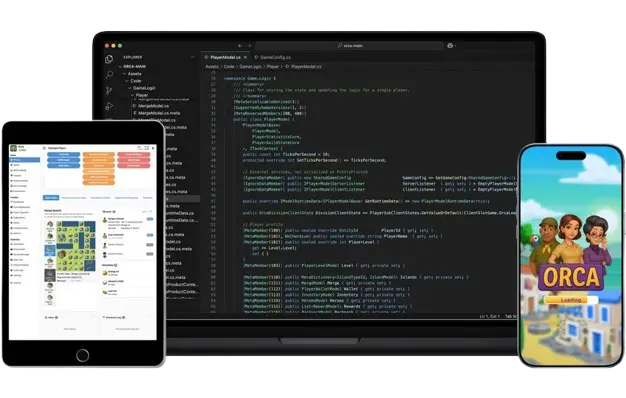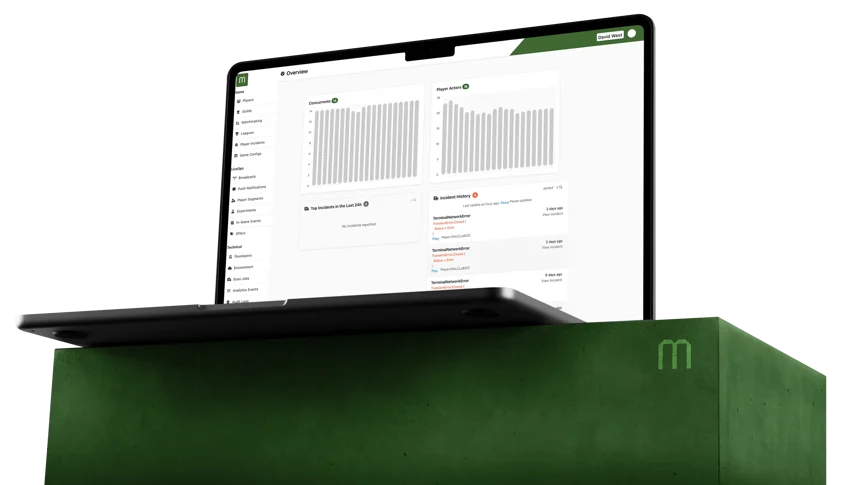Meet Orca — Built with Metaplay
Explore the full source code of a real Metaplay game for free
See exactly how Metaplay powers real live-service games with the complete, production-grade source of Orca—a merge-2, story-driven Unity game built with Metaplay SDK, now open source under Apache-2.0.

Apache 2.0 — Yeah, it's actually free
We've opened up the full Orca project so you can see how Metaplay works in a real production game. Play it, read the code, and build on it yourself.
See It Live
Play the Orca Demo in your browser to experience how Metaplay keeps gameplay smooth, synced, and server authoritative.
Peek Under the Hood
Browse the complete Unity project and backend source on GitHub. Check out the player models, configs, and triggers that power Orca.
Build Your Own
Clone the repo, run the server locally, and start experimenting. Fork it, tweak the configs, and deploy your own version to Metaplay Cloud.
Orca shows Metaplay in action
Every part of Orca runs on real Metaplay systems. From data-driven design tools to the deterministic backend and LiveOps dashboard, it is a working example of how studios can build fast, safe, and scalable live-service games.
The full source reveals how those systems connect in practice so developers can see, run, and build on a real production setup.
- Editable Google Sheets compile directly into shared game code
- Fully customizable, as simple or as complex as you want
- Tutorial and story logic built entirely from trigger-based configs
- One set of Models and Actions shared between client and server
- Client-side prediction for instant feedback
- Server authority for a secure, hacker-proof economy
- Rich visualization of player states and in-game economy
- Manage your game over-the-air without the need for client updates
- Extend with custom views and admin tools using Metaplay's dashboard framework
Built for Real Team Collaboration
Metaplay is built for collaboration across teams. Orca shows how programmers, designers, and producers can all work on the same platform, sharing the same data, tools, and goals, without blocking each other or waiting on new builds.
For Developers
Write clean, deterministic game logic once and run it safely on both client and server. The foundation stays solid while the rest of the team builds freely on top.
For Designers
Shape progression, pacing, and story directly through editable Game Configs. Update data in real time without touching code or waiting for a merge.
For Producers
Manage events, offers, and tuning through the LiveOps Dashboard. Launch updates instantly and collaborate with the rest of the team using the same shared systems.
Try it out for yourself
Play the demo
Experience Orca in action right in your browser — explore the story, merge, and see the backend working behind every tap.
Get started→Browse the source
Open the full Unity and backend project on GitHub. Study how the systems connect, copy what you like, and build from there.
Get started→Deploy your own
Sign up to the Metaplay Portal and fork the repo, run it locally, and push to Metaplay Cloud to make it your own.
Get started→Ready to build your own live-service game?
Orca is just the beginning. Get the Metaplay SDK and start building your game today.
